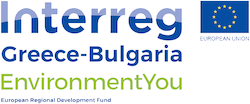The Protocol is an international document adopted in Kyoto, Japan, in 1997 and ratified by Bulgaria by a law adopted by the 39th National Assembly on 17 July 2002. Written and peer-reviewed by more than 2,000 scientists and experts, the assessment soon became known for its conclusion that the climate had already begun to "respond" to greenhouse gas emissions accumulated in the past. Along with the problems, the report identified cost-effective strategies to reduce greenhouse gas emissions.
Meanwhile, although greenhouse gas emissions have stabilised in some countries, emissions levels in the world as a whole continue to rise. More and more people are coming to accept that only a firm and binding commitment from developed countries could send a strong enough signal to persuade businesses, communities and everyone to change their attitude to this global problem.
The Kyoto Protocol affects virtually all major sectors of the economy and is considered the most comprehensive agreement on environmental issues and sustainable development ever signed. This is a sign that the international community is willing to face reality and take concrete action to reduce the threat of climate change.
While the Convention encourages countries to stabilise their greenhouse gas emissions, the Protocol obliges them to reduce their overall level by at least 5% over the period 2008-2012. These five years are known as the "first commitment period". The Protocol sets a national target for each individual country, as no single commitment for all countries was agreed in Kyoto.
The resulting individual goals are not based on any rigid or objective formula. Rather, they are the result of political negotiation and compromise. The 5% reduction, which is a common target for developed countries, is distributed among them as follows: 8% for the European Union, Switzerland and most of the countries of Central and Eastern Europe; 6% for Canada, Hungary, Japan and Poland.
New Zealand, Russia and Ukraine must maintain their emission levels, while three other countries can increase them: Norway by almost 1%, Australia by up to 8% and Iceland by 10%.
The European Union reaches an agreement to fulfil its 8% obligation by making an allocation among member states, just as the 5% obligation common to the developed country group was allocated. Bulgaria's commitment is 8% relative to a base year of 1988.
As stipulated in the Protocol, all Parties, including Bulgaria, must annually prepare a complete inventory of greenhouse gases according to their sources and periodically submit to the Convention a detailed report on the policies and measures the country is taking to meet its obligations.
The Protocol allows parties to "bank" emission reductions above their pledged commitments as a form of credit for future treaty periods. For cases where a country exceeds its greenhouse gas emissions above the permitted levels, it is necessary to develop "non-compliance" measures.
The Kyoto Protocol establishes special mechanisms that give Parties to the Convention opportunities to reduce emissions more economically in other countries. It establishes three mechanisms for obtaining credits from reduced emissions:
- Joint implementation
- Pure development
- International emissions trading
Through the use of these mechanisms, under certain conditions, Bulgaria obtains economic, technical and environmental benefits. This is a way to acquire targeted investments, high-tech environmental equipment, modernisation of the energy sector, which in turn helps to comply with the requirements of European legislation.

